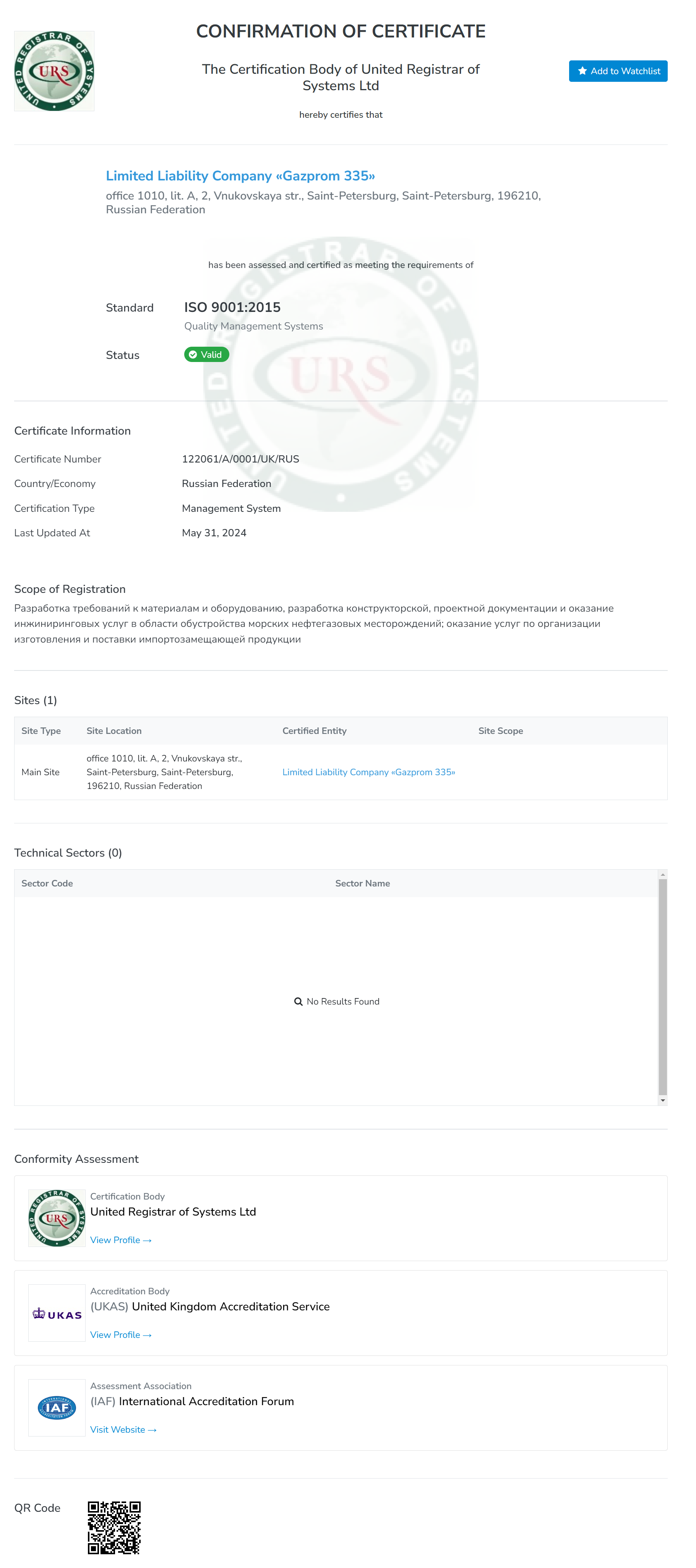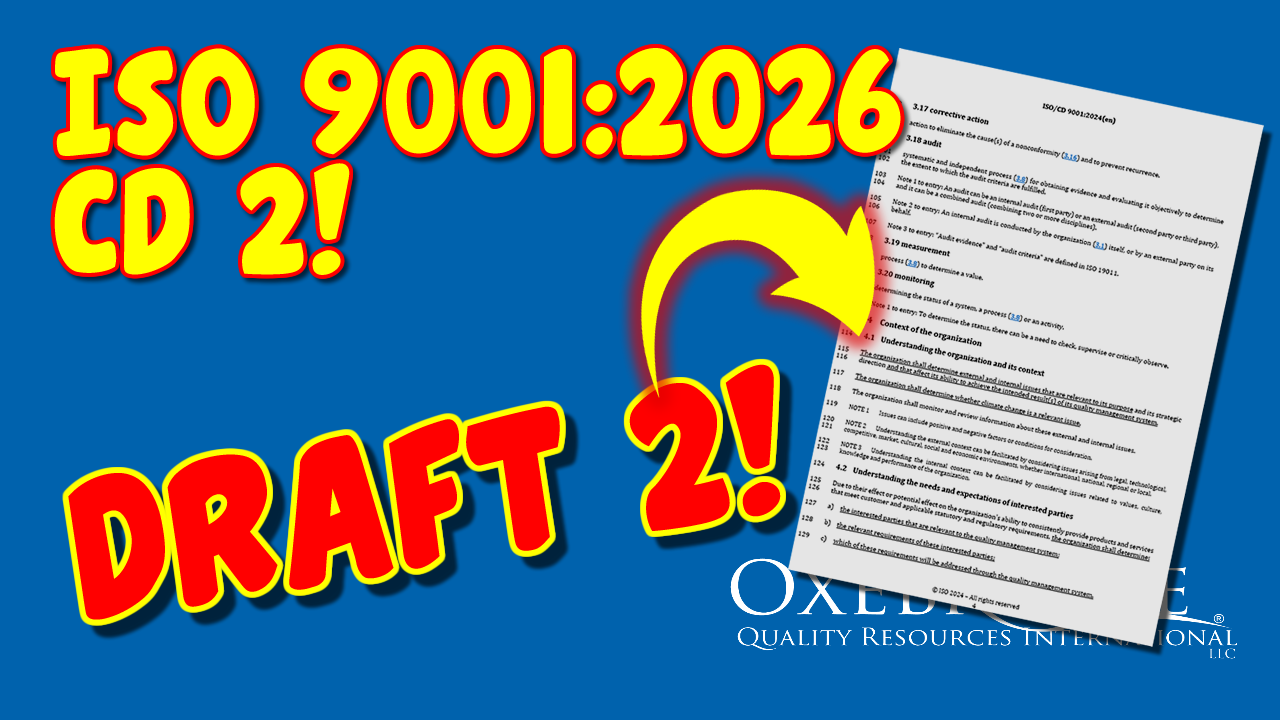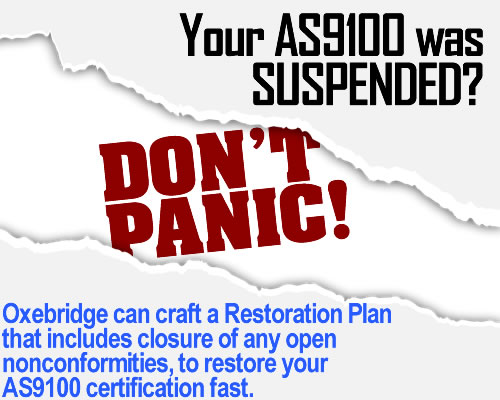The UKAS-accredited certification body United Registrar of Systems (URS) continues to offer certification services in Russia despite US, UK, and EU sanctions.
URS issued ISO 9001 certification to Gazprom as recently as May of 2024, ignoring sanctions against the company. Gazprom and its executives are under international sanctions for that company’s role in the Russian invasion of Crimea and Ukraine. The specific subsidiary certified by URS, “LLC Gazprom 335,” is not individually listed on the list of sanctions, however, as Russia created new subsidiaries whenever sanctions are imposed, in order to circumvent them.

The point is largely moot, however, since sanctions were extended to the offering of management system consulting and auditing services in general, to any company in Russia. Specific to the UK, this is defined under Regulation 54C, which prohibits the provision of “business and management consulting services” to any entity or person in Russia, not just those uniquely identified on a sanctions list.
That regulation then refers to Schedule 3J, which defines “business and management consulting services” as follows:
… advisory, guidance and operational assistance services provided for business policy and strategy and the overall planning, structuring and control of an organisation, which includes (but is not limited to) management auditing, market management, human resources, production management and project management consulting.
It appears that UKAS continues to ignore its own nation’s laws in order to provide accreditated services in Russia.
URS is reportedly managed by the former staff of Russian Register, which was affected by the sanctions and has taken positions in support of the Russian invasions. Now, sources report the management of that body has simply gone to work for URS, which has its headquarters out of the UK under the company URS Holdings.
IAF Complicity
The International Accreditation Forum (IAF), which oversees bodies like UKAS, initially resisted complying with international sanctions. Eventually, the IAF yielded and issued a tepid prohibition against offering accredited certifications in Russia but then scaled that back to prohibit certification only to entities specifically listed on individual sanctions lists. The IAF ruling ignores UKAS and EU laws prohibiting some services from being offered to any entity in Russia.
The IAF then refused to enforce its own mandate and continues to allow members to operate freely in Russia. The current IAF Chair, Emanuele Riva, is also the head of Italy’s accreditation body, Accredia, which has stepped in to offer services in Russia after the ouster of the Russian Register. This has caused some to suspect Riva of using his role as IAF Chair to benefit his employer, Accredia. The Italian government has refused to investigate Accredia or Riva for violations of EU sanctions.
Pattern of Corruption
Accreditation bodies like UKAS and Accredia have ignored these sanctions as they reap money from the country. The IAF faces a COFAC complaint in the United States, which makes it illegal for US-based companies to obtain revenue by circumventing Russian sanctions. Eventually, a portion of every ISO certificate sold in Russia flows back to the IAF, through its membership agreements.
Under CEO Matt Gantley, UKAS has taken positions in defiance of international law, treating itself as “supralegal” and above all regulation or laws. To date, the UK Parliament has not investigated UKAS or Gantley for alleged violations of law nor for continuing to allow the UKAS mark to be used by companies found to have been engaged in human trafficking and other crimes. Lord Lindsay of the UK House of Lords acts as UKAS’ official sponsor, and his office has refused to investigate UKAS, instead allowing Lindsay’s appearances with Gantley to protect the accreditation body from scrutiny.
URS has emerged as one of the most controversial ISO certification bodies and yet retains its accreditation with UKAS. The CB continues to certify an Indian pharmaceutical distributor that was found to be peddling fake COVID cures. In that case, the head of URS regulatory affairs, Vikas Sengar, threatened Oxebridge with legal action for reporting on the case. No suit was ever filed.
In 2020, URS was found to have issued an ISO 9001 QMS certificate to another certification body in Russia, which is expressly prohibited under ISO 17011, which defines URS’ accreditation requirements. In response to that scandal, URS attempted to invent a justification that contradicted ISO 17011 entirely. URS eventually relented and withdrew the certificate.
In 2019, Oxebridge uncovered a series of scandals related to improper quoting of ISO certification services by URS’ operations in Qatar. The UK home office of URS dropped the complaint without processing it, while accusing Oxebridge of fraud for filing it. The corrupt practices continue in Qatar, and UKAS has not taken action.
Neither IAF nor UKAS have responded regarding the recent URS activity in Russia.







